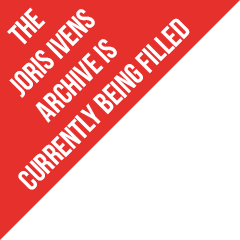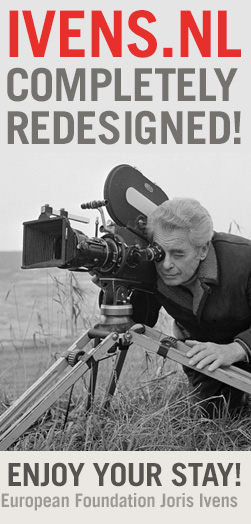

Name curator: Pedro Tavares
Name artist: Laura Waddington
Title of the work you have chosen: Border
English title: Border
Year of production: 2004
Format: 27 min. Digibeta PAL, Colour, Stereo
Read down here the interview with the curator Pedro Mota Tavares about his selection
Name: Pedro MOTA TAVARES
Function: Filmmaker
What is your main interest: documentary film
Where do you come from/ where do you live: Porto, Portugal
About the film and the filmmakers:
What can you tell about this film?
Sangatte is a french commune on the northern coast of France, very near the channel tunnel. The Sangatte Red Cross camp used to operate here until it was officially closed in the year of 2002, after a campaign of brutal violence led by the police. There were mainly Afghan and Iraqi refugees living in the fields around the camp, waiting for an opportunity to cross the channel tunnel in order to reach England and seek asylum. These refugees had fled their countries of origin due to the internal conflicts experienced there and also because they were lacking means of subsistence as a direct consequence of war.
Border operates against the methods used in the media coverage by those whose only aim is to convey the appearance of the events they portray and, by doing that, shape a public opinion based on preconception and a certain kind of idealism. First and foremost, Border characterizes itself as an experience of immersion into the reality of these refugees. The proximity of the camera lens and the personal testimony on the hard circumstances of the refugees are the main components by which the filmmaker produces a voice which breaks the silence; by doing this, Laura Waddington gave body to the image of those who have been deprived of dignity and whose time seems suspended between borders.
Laura Waddington shot Border entirely during night by using a small video camera with a very low shutter speed, which gives the images the appearance of fragments kept by memory – which takes in account all the filmmakers personal impressions and the haunted experienced of these events. Very few or almost no faces are shown during the film, but in the end we are confronted with a blinding light which takes us back to our own lack of humanity, taking in consideration our permanent refusal to see and to understand.
How does this film relate to the theme ‘politics and poetry’ in your opinion?
Brief glimpses of resistance very often arise in the hardest circumstances by those who seem to be the more vulnerable; these small gestures led by ordinary men are usually forgotten in the “official context” – i.e. the mainstream (academic, cultural and political). Regarding this matter, Border approaches with patience and caring the reality of the refugees trying to cross the channel tunnel, revealing a permanent sense of beauty and freedom in the hard struggle they are faced with. Each shot in Border creates a counterpoint regarding the established visual language created and dominated by culture, which is – in very simple and direct terms – the mask which hides the true face of the oppressor.
Are politics and poetry (or politics and arts) two separate worlds according to you? Why / why not?
They’re both part of the same world, since every film is political and naturally ideological. The simple act of framing a shot is a matter of choosing what should be seen by the spectator and what it has to be kept invisible, behind the screen. In terms of a fiction film an actor usually produces a speech which is not is own, as in documentary film the person responsible for the editing may only use five minutes of a person’s testimony which has in fact thirty minutes. By producing an image we are also making a personal statement which has to be put on a social and historical context: who are those which they serve and who is confronted by them?
There are a lot of political tensions and changes in the world right now. Do you (already) notice any changes in the focus and/or ideas and work of artists because of these developments? Do you have examples?
I’m faced now with the evidence that is no longer possible to talk about resistance regarding the great deceases of our time, which are capitalism and the neoliberal way of thinking. Both of these combined have highly contributed to pollute everything surrounding us and even our own personal relationships, since everything nowadays seems to be regulated in terms of commercial interest. We can only talk about resistance regarding the self, but concerning these matters the proper term to be used is dissidence, which is only a way of not accepting any kind of pre-conditions imposed by those in power and finding new ways to do new things; of course that, in the end, if we are a large number and if we gather our forces, we can then assume a consistent form of resistance.
Concerning the proliferation of images produced by mass media and pop culture, whose visual language relies solely in capitalistic ideology, a few exceptions should be made in the context of present filmmaking, but I’ll only name one for the time being: Wang Bing.
Besides the theme of ‘Politics and poetry’ are there any other comparisons between this artist and Ivens according to you?
«(…) I went there during about six months and gradually I got to know the refugees. I really liked some of them - there was a feeling that passed between us. I don’t know - a kind way of thinking about things, a way of laughing. They were very suspicious of journalists so I explained that I wasn’t going to make the film in a journalistic way and I agreed not to film their faces. It’s funny because people say they feel an intimacy in the film, but we never see their faces, except in one scene.».
(Interview with Cedric Eltimich, Web Reporters, Brussels, 25th November, 2004)
«Recently I came to the conclusion that exists a kind of triangle. (Joris Ivens draws a triangle in which the vertices indicate the filmmaker (A), the people who are filmed (B) and the spectator(C)). If the relationship between A and B is a direct one, sustained through honesty, C evolves by itself, and if, after having seen 17th Parallel, people have often told me: “I’ve felt like I’ve been in Vietnam for two hours straight”…(Which I can only answer by saying them: “Thank you”…) They say so because our relationship, my own and Marceline’s, with the Vietnamese people, was an honest one, both from a human and ideological point of view, but also in professional and working terms. (…) This is what a relationship of honesty and responsibility is».
(Encounter with Joris Ivens, Portuguese Cinematheque, Paris, 21st of January, 1983)
